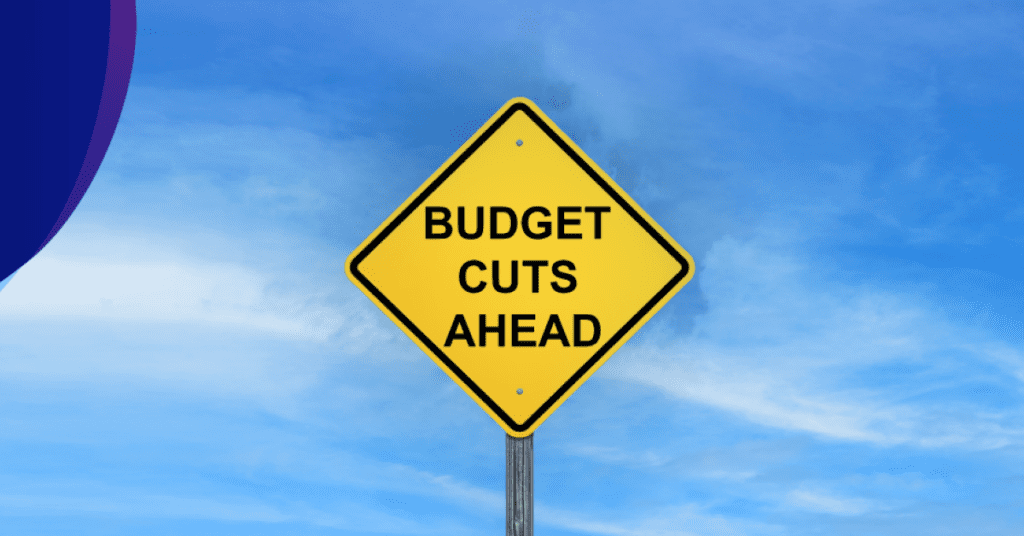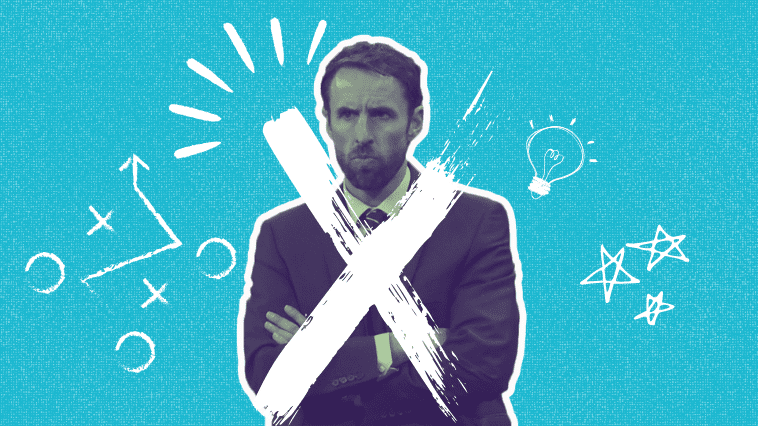Euphoria.
Pints in plastic cups, poured fresh and barely sipped, cut through the air, their icy chill showering down onto waterproof ponchos and sunburnt skin.
Street parties, beer gardens, flags, and bunting; 60,000 Wembley go-ers erupting with millions across the country in a seismic roar.
It’s the second minute of the Euro 2020 Final, and Luke Shaw has just scored. This was it. The dream of an entire nation hangs in the summer air.
It was finally coming home.

Or, at least we thought.
If an early goal was the perfect start, the strategy that followed was not-so-perfect.
As the game went on, England began to invite pressure; their focus no longer on winning but rather not losing. The defense began to drop back, Italy piled on the pressure, and sixty-five long minutes later, the inevitable.
An Italy goal that took the game to penalties. Penalties which took the dream from England.
Three years on, the mentality of playing it safe is rearing its head again, only this time it’s not just about the footy.
As the UK dips in and out of mild recessions, the general election balances on a knife’s edge, and it seems we’re tipping towards (another) economic downturn.
If your instinct is to cut back, hunker down, and play it safe, you’re not alone. Many businesses are facing the same dilemma. But just like England’s approach in the Euro final, being overly-cautious can backfire.
Sharpen Your Axe
When times get tough and purse strings tighten, marketing budgets are often the first to face the axe.
And to be honest, this kind of makes sense.
To many, marketing is viewed as a non-essential spend compared to other core operational costs. The results in many cases aren’t immediately visible, or tangible. Add to this, marketing is a perceived variable expense, with an uncertain ROI, so slashing the budget not only provides instant cost savings but also some risk aversion.
If you think like this, you’re probably an astute business owner. But you’re also probably wrong.

Let’s make this clear. Halting your efforts will save you money, temporarily, but the trade you’re making is some short term relief for the long term health of your brand. Your ability to bounce back and recover.
It’s the equivalent of sitting back after being a goal up. What you’re really doing is handing the initiative over to your competitors, to capture the market share you relinquished. And when the skies clear, and the economy makes a turn for the better, you’ll find yourself in the same, if not a worse position than where you started, while others have leaped ahead.
But don’t it from me, take it from Harvard. Their research indicates that companies maintaining or increasing their marketing spend during economic downturns saw higher sales and market share growth than those that cut back. For instance, during the 2008 financial crisis, businesses that kept up their marketing efforts emerged stronger and better positioned for recovery.
Now for some more good news. Chances are, if you were contemplating cuts, your competitors are too. This means:
- Higher rankings with SEO– reduced competition makes it easier to rank higher for targeted keywords.
- Lower Ad Costs – with fewer competitors bidding on keywords in PPC & Meta Ads, costs decrease with demand and you get more value for money.
- Better placements – reduced competition means your PPC & Meta ads are more likely to appear in prime positions for your target audience.
- Increased Engagement – less clutter in SEO, PPC & Meta means your content and ads are more likely to engage your audience effectively.
Recessions are temporary. The economy will recover, it always does. And when it does, you’ll be in a prime position, having taken the axe you would have used to cut your budget and carving out the market share of your competitors who chose to stay stagnant.
The Pickford Paradox
Remember Iceland?
If Sunday’s game against Slovakia was to remind us of anything, it was England’s early exit against Iceland in Euro 2016. But for me, as Pickford collected the ball in the final seconds, head-banging like a maniac, I was reminded of the country’s collective love for him, which (ironically) is rooted from that very defeat eight years ago.

Back then, England were bad. Worse than even now, which seems almost unfathomable.
The Icelandic disaster led to a complete overhaul, starting with the manager, and ending with Joe Hart, who’s mistakes during the tournament had made him an unfortunate scapegoat. It was at this time Pickford was brought in, seen as the best of a bad bunch.
Yet, despite the seemingly dire circumstances, his performances stood out. He consistently delivered, earning the trust and loyalty of fans. He became a constant, dependable presence, giving supporters a sense of stability amidst the chaos.
This situation is a lot like what brands face during economic downturns. When companies cut back, the market becomes less crowded.
This then becomes your golden opportunity to gain a larger share of voice and build stronger connections with consumers. Research by McKinsey supports this, indicating that companies who adapt their marketing strategies during downturns can unlock 2% to 5% growth by focusing on high-ROI activities.
Couple this with the fact that during recessions consumers become much more selective about where they spend their money – a perfect time to build lasting loyalty.
By showing up and delivering consistent value, much like Pickford did during tough times, brands can earn lasting trust. Data from Amazon Ads further supports this, showing significant increases in awareness, consideration, and sales for companies investing in brand-building solutions, compared to those that did not during a similar period .
But much better than any statistic, just ask an England fan about Pickford.
They’d probably say he swears a bit too much.
Or he comes off his line too often.
Or that there’s probably more talented options, like Henderson, Pope and Ramsdale.
Or he has little arms.
Yet would they replace him? Not in a million years.
Final Whistle
We don’t know who will win the election. We don’t know if England’s extra life in the tournament will finally see them start to attack. We don’t know if Pickford will stop trying to attack.
But if the economy does dip, what will you do?
Are you going to play it safe and risk missing out, or take the initiative, and position your business for success when the tide turns?
The final whistle hasn’t blown yet. Our advice, is to just don’t be like Gareth.

